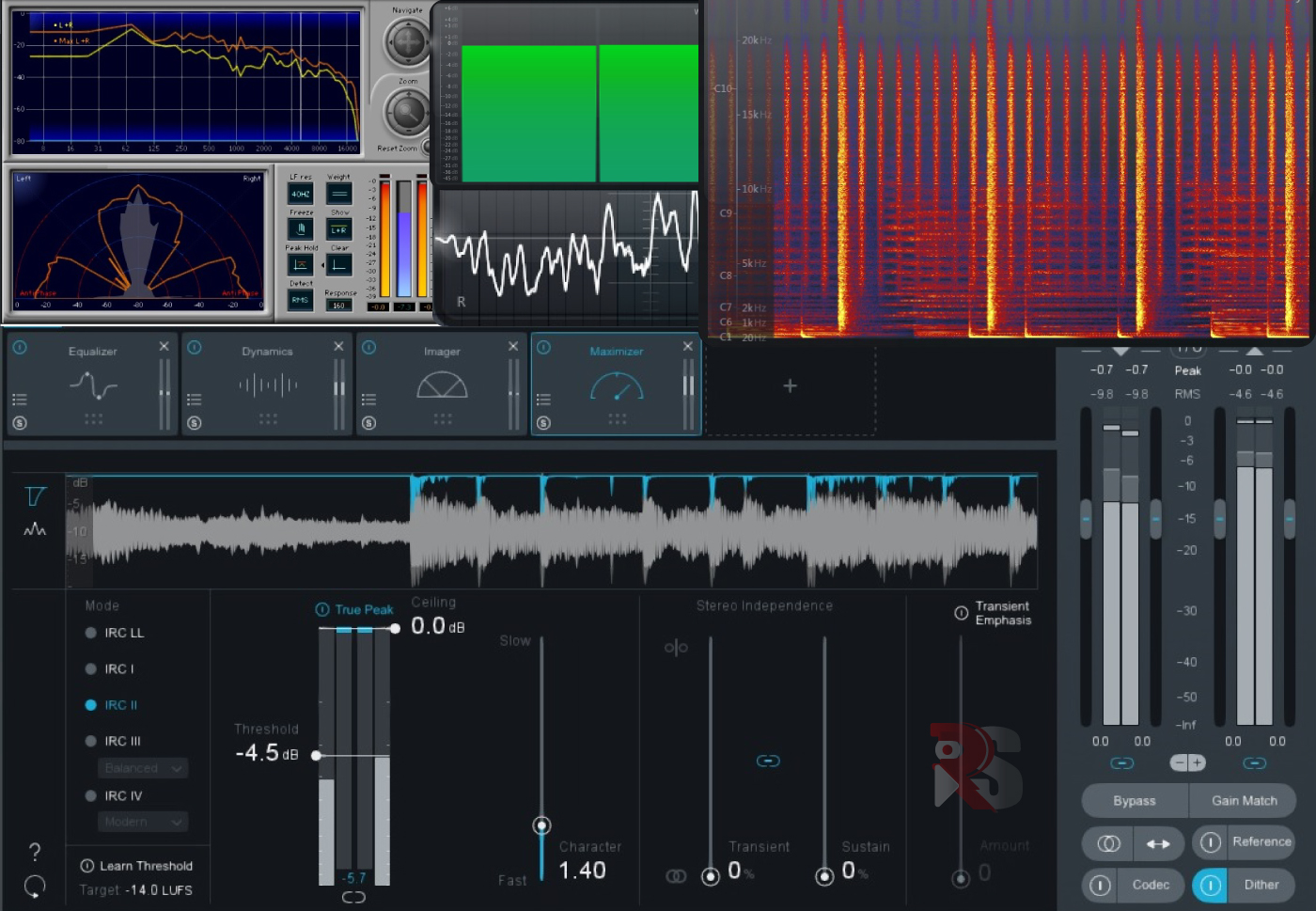
Digital Audio Mastering, the final post production process that precedes the mixdown process. Digital Mastering is processed within a DAW ( Digital Audio Workstation). The applied techniques are fundamentally similar to that of mixing. Applying EQ, Compression, Limiters, Stereo Field Enhancement and other processes, but limited to working within the original resolution of the stereo mixdown (or multi channel surround for Surround Sound). Digital Mastering has become more prominent throughout the years with the advancements of computers, software and cost.
However, Digital Mastering has the ability to utilize a wide range of analog plugin emulators that are capable of producing the sonic and processing characteristics of Analog Gear with an impressive degree of accuracy.
Mastering includes preparing a single mixed track or tracks (E.P, Compilations, Albums) for transferring into a Master CD to be handed over for pressing or manufacturing (CD Rom). Here the final processes (sometimes regarded as Final EQ) will be applied to further enhance, widen, remove clicks and pops, boost or reduce frequencies and output levels. When Mastering multiple tracks or songs it is practiced to adjust the length between songs, maintain a uniformed output level for all included tracks and fading out the ends of tracks if necessary.
Digital Mastering and Analog Mastering are different technologies (platforms) serving the same purpose. Most notably varying between the two are the Equipment and Sonic characteristics. However, Digital Mastering has the ability to utilize a wide range of analog plugin emulators that are capable of producing the sonic and processing characteristics of Analog Mastering with an impressive degree of accuracy.
It is important to note that the Mixdown file requires adequate headroom for the Mastering Engineer and preferable with little to no Limiter processing activated during the rendering process of the mixdown. This would provide the Mastering Engineer more room to apply necessary fixes and adjustments during the Mastering process to sweeten the final output. ISRC Codes (International Standard Recording Code) and text can be encoded during the Mastering process, which is often practiced for identification purposes.

